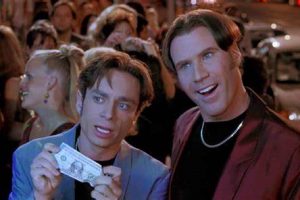Film scores have been an integral part of cinema since the early days of the medium. From the classical orchestral scores of the Golden Age of Hollywood to the electronic and experimental soundtracks of modern cinema, music has played a crucial role in enhancing the emotional impact of films and creating unforgettable movie experiences. This guide aims to provide an overview of film scores, exploring their history, evolution, and impact on cinema.
The Early Years of Film Music
The use of music in films dates back to the late 19th century, when piano players provided live music to accompany silent movies. With the advent of sound in cinema, film scores began to take shape, and composers like Max Steiner, Erich Wolfgang Korngold, and Alfred Newman became household names. These early film scores were primarily orchestral, with sweeping themes and lush harmonies that evoked the grandeur and romance of the movies.
The Golden Age of Film Music
The 1930s to the 1960s are often referred to as the Golden Age of film music. During this period, film scores became more sophisticated and complex, with composers like Bernard Herrmann, Elmer Bernstein, and John Williams creating iconic soundtracks that are still remembered today. These scores often featured large orchestras and incorporated a wide range of musical styles, from jazz and blues to classical and folk.
One of the most iconic film scores of this era is Max Steiner’s “Gone with the Wind” (1939), which featured a lush orchestral score that captured the epic scope and romance of the film. Another classic score from this period is Bernard Herrmann’s “Psycho” (1960), which used stark, jarring strings to create a sense of tension and suspense that complemented the film’s shocking shower scene.
The Evolution of Film Music
In the 1960s and 1970s, film scores began to change, reflecting the shift in cultural attitudes and the rise of new musical styles. Composers like John Williams, Jerry Goldsmith, and Ennio Morricone created scores that incorporated elements of rock, pop, and electronic music, giving films like “Star Wars” (1977), “Alien” (1979), and “The Good, the Bad and the Ugly” (1966) their distinctive sound.
The 1980s and 1990s saw the rise of electronic and synthesized scores, with composers like Vangelis ( “Blade Runner” , 1982) and Hans Zimmer ( “The Lion King” , 1994) creating soundtracks that were more atmospheric and ambient. This approach was particularly effective in sci-fi and fantasy films, where the use of electronic instruments could create otherworldly soundscapes.
The Modern Era of Film Music
In recent years, film scores have continued to evolve, incorporating a wide range of musical styles and influences. Composers like Alexandre Desplat, Michael Giacchino, and Thomas Newman have created scores that are both memorable and innovative, using a combination of traditional orchestral instruments and electronic elements.
One of the most notable trends in modern film music is the use of nostalgia and retro styles. Composers like Trent Reznor and Atticus Ross ( “The Social Network” , 2010) and Dan Romer ( “Beasts of the Southern Wild” , 2012) have created scores that incorporate elements of vintage electronic music, folk, and indie rock, giving films a distinctive and timeless quality.
The Impact of Film Music
Film scores have had a profound impact on cinema, shaping the way we experience and remember movies. A well-crafted score can evoke emotions, create tension, and enhance the visual elements of a film. It can also help to establish the film’s setting and atmosphere, transporting the audience to a different time and place.
Moreover, film scores have played a significant role in shaping popular culture. Many iconic movie themes have become recognizable and beloved pieces of music, with songs like “Star Wars” , “Jaws” (1975), and “Harry Potter” (2001) becoming synonymous with their respective franchises.
Film scores have been an integral part of cinema since its early days, and their impact on the medium cannot be overstated. From the classical orchestral scores of the Golden Age to the electronic and experimental soundtracks of modern cinema, music has played a crucial role in enhancing the emotional impact of films and creating unforgettable movie experiences.
Whether it’s the sweeping orchestral themes of “Gone with the Wind” , the jarring strings of “Psycho” , or the nostalgic electronica of “The Social Network” , film scores have the power to transport us to different worlds, evoke powerful emotions, and create lasting memories. As technology continues to evolve, it will be interesting to see how film scores adapt and change, but one thing is certain – the music of the movies will continue to play a vital role in shaping the cinematic experience for generations to come.
















Add Comment